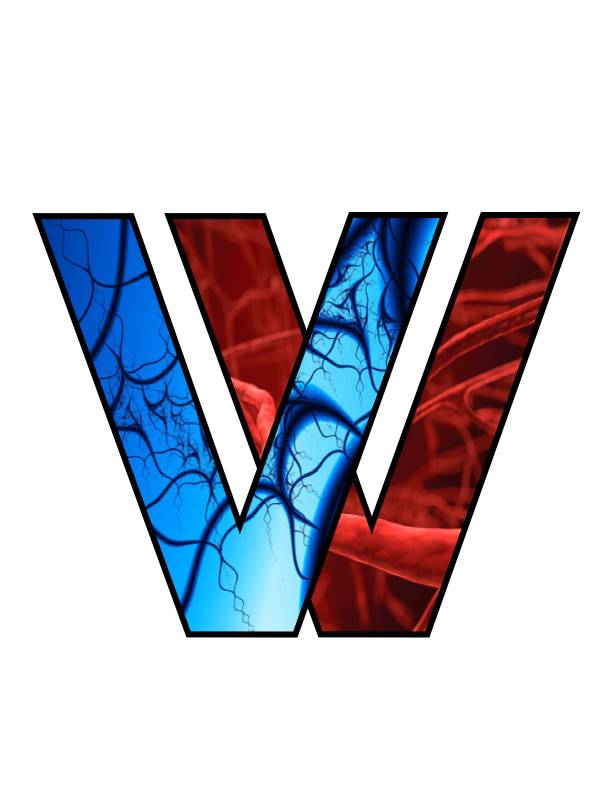



Frequently Asked Questions
What is vascular disease?
Vascular disease is a medical condition that affects the circulatory system.
Generally speaking, there are two serious health conditions that can cause different types of vascular disease:
What are the different types of vascular disease?
How will my doctor know if I have vascular disease?
Vascular disease is not always easy to detect. Some types have obvious symptoms, while others are more difficult to identify. Your doctor will review your family history, and your risk factors and symptoms. You may undergo a series of tests and examinations.
Can vascular disease be treated?
Most vascular disease can be treated if found early. Treatments may include lifestyle changes such as diet, exercise, and quitting smoking. For more serious disease, common surgical procedures are available to repair an aneurysm or restore blood flow to an artery.
What are the risk factors for vascular disease?
You may be at risk for vascular disease, if you answer “yes” to one or more of these questions:
Do you do vascular “screening"?
Yes. All of our offices have an ultrasound lab, and an ultrasound technician on staff.
Please see Venous Disease/Chronic Venous Insufficiency.
Are you accepting new patients?
Yes, SFVVG is accepting new patients. We will schedule an appointment for you in one of our four offices, as soon as possible. Please see our office contact information or ask your primary care physician for a referral.
Do you accept Medicare?
Yes, we accept Medicare and Medi-medi. We also accept most HMO and PPO insurance. Please call our office at: 818-345-6126 for details.
Is your facility an accredited facility?
Yes, we perform smaller endovascular arterial and venous interventions in our office, however most other surgeries are performed in a hospital setting in an operating room. We are accredited by the AAAHC (Accreditation Association for Ambulatory Health Care).
Do you treat varicose veins?
Yes. San Fernando Valley Vascular Group offers several treatment options for varicose veins.
Do you treat "spider veins"?
Our group treats all aspects of venous pathology. Therapy includes various types of compression therapy, radiofrequency ablation for venous insufficiency, phlebectomy, laser therapy and sclerotherapy. These are all treated in an outpatient setting and do not require an overnight stay in the hospital. Some of these procedures are not covered by insurance. Please call our office to inquire.
What is "Radiofrequency Ablation"?
The procedure known as "vein stripping" in more recent years has been replaced by a simple endovenous closure of the greater and or lesser saphenous veins, to help with symptoms of varicose veins and a myriad of other symptoms associated with chronic venous insufficiency. This endovenous closure can be performed by radiofrequency ablation to close the veins from the inside of the actual vein itself. The procedure is an out-patient procedure, and is performed in our Tarzana surgery center.
Are varicose veins life threatening?
Varicose veins are superficial veins and by themselves are a nuisance and can cause pain, heaviness, swelling, skin discoloration and even ulcers. They are not life threatening. Swelling and pain especially in one leg, can also be symptoms of a deep vein thrombosis (DVT), which can be life threatening.
Do you treat phlebitis?
"Phlebitis" is a term that simply means inflammation of a vein. Commonly, this is secondary to thrombus or clot inside a vein. Although, the treatment for superficial phlebitis is conservative anti-inflammatory management, often there is an underlying reason why you formed a clot within your vein. This can be diagnosed with a special type of ultrasound which can be performed in our office by our specialized vascular ultrasound technicians. Once diagnosed, your doctor will decide what treatment to administer.
Will my insurance cover my procedure?
Please call our office for details regarding insurance coverage.
Vascular disease is a medical condition that affects the circulatory system.
Generally speaking, there are two serious health conditions that can cause different types of vascular disease:
- Aneurysm – When the wall of the artery weakens, causing a bulge that could suddenly burst like a balloon.
- Atherosclerosis – The build-up of fat and cholesterol (plaque) inside artery walls that decreases or restricts blood flow, also known as “hardening of the arteries.”
What are the different types of vascular disease?
- Aortic Aneurysm – An aortic aneurysm occurs when an area of the abdominal or thoracic aorta weakens and bulges out. Over time the area can further weaken and rupture.
- Peripheral Artery Disease – PAD is caused by a build-up of plaque inside the blood vessels, causing a condition called atherosclerosis. This reduces blood flow to major arteries in the body, which can cause serious health issues.
- Carotid Artery Disease - Carotid artery disease effects arteries in the neck that supply blood to the brain.
- Renal Artery Stenosis - Renal artery stenosis effects the arteries that supply blood to the kidneys.
How will my doctor know if I have vascular disease?
Vascular disease is not always easy to detect. Some types have obvious symptoms, while others are more difficult to identify. Your doctor will review your family history, and your risk factors and symptoms. You may undergo a series of tests and examinations.
Can vascular disease be treated?
Most vascular disease can be treated if found early. Treatments may include lifestyle changes such as diet, exercise, and quitting smoking. For more serious disease, common surgical procedures are available to repair an aneurysm or restore blood flow to an artery.
What are the risk factors for vascular disease?
You may be at risk for vascular disease, if you answer “yes” to one or more of these questions:
- Has anyone in your family had vascular disease?
- Are you, or have you ever been a smoker?
- Are you over 50 years old?
- Do you have high blood pressure (hypertension)
- Do you have high cholesterol?
Do you do vascular “screening"?
Yes. All of our offices have an ultrasound lab, and an ultrasound technician on staff.
Please see Venous Disease/Chronic Venous Insufficiency.
Are you accepting new patients?
Yes, SFVVG is accepting new patients. We will schedule an appointment for you in one of our four offices, as soon as possible. Please see our office contact information or ask your primary care physician for a referral.
Do you accept Medicare?
Yes, we accept Medicare and Medi-medi. We also accept most HMO and PPO insurance. Please call our office at: 818-345-6126 for details.
Is your facility an accredited facility?
Yes, we perform smaller endovascular arterial and venous interventions in our office, however most other surgeries are performed in a hospital setting in an operating room. We are accredited by the AAAHC (Accreditation Association for Ambulatory Health Care).
Do you treat varicose veins?
Yes. San Fernando Valley Vascular Group offers several treatment options for varicose veins.
Do you treat "spider veins"?
Our group treats all aspects of venous pathology. Therapy includes various types of compression therapy, radiofrequency ablation for venous insufficiency, phlebectomy, laser therapy and sclerotherapy. These are all treated in an outpatient setting and do not require an overnight stay in the hospital. Some of these procedures are not covered by insurance. Please call our office to inquire.
What is "Radiofrequency Ablation"?
The procedure known as "vein stripping" in more recent years has been replaced by a simple endovenous closure of the greater and or lesser saphenous veins, to help with symptoms of varicose veins and a myriad of other symptoms associated with chronic venous insufficiency. This endovenous closure can be performed by radiofrequency ablation to close the veins from the inside of the actual vein itself. The procedure is an out-patient procedure, and is performed in our Tarzana surgery center.
Are varicose veins life threatening?
Varicose veins are superficial veins and by themselves are a nuisance and can cause pain, heaviness, swelling, skin discoloration and even ulcers. They are not life threatening. Swelling and pain especially in one leg, can also be symptoms of a deep vein thrombosis (DVT), which can be life threatening.
Do you treat phlebitis?
"Phlebitis" is a term that simply means inflammation of a vein. Commonly, this is secondary to thrombus or clot inside a vein. Although, the treatment for superficial phlebitis is conservative anti-inflammatory management, often there is an underlying reason why you formed a clot within your vein. This can be diagnosed with a special type of ultrasound which can be performed in our office by our specialized vascular ultrasound technicians. Once diagnosed, your doctor will decide what treatment to administer.
Will my insurance cover my procedure?
Please call our office for details regarding insurance coverage.



